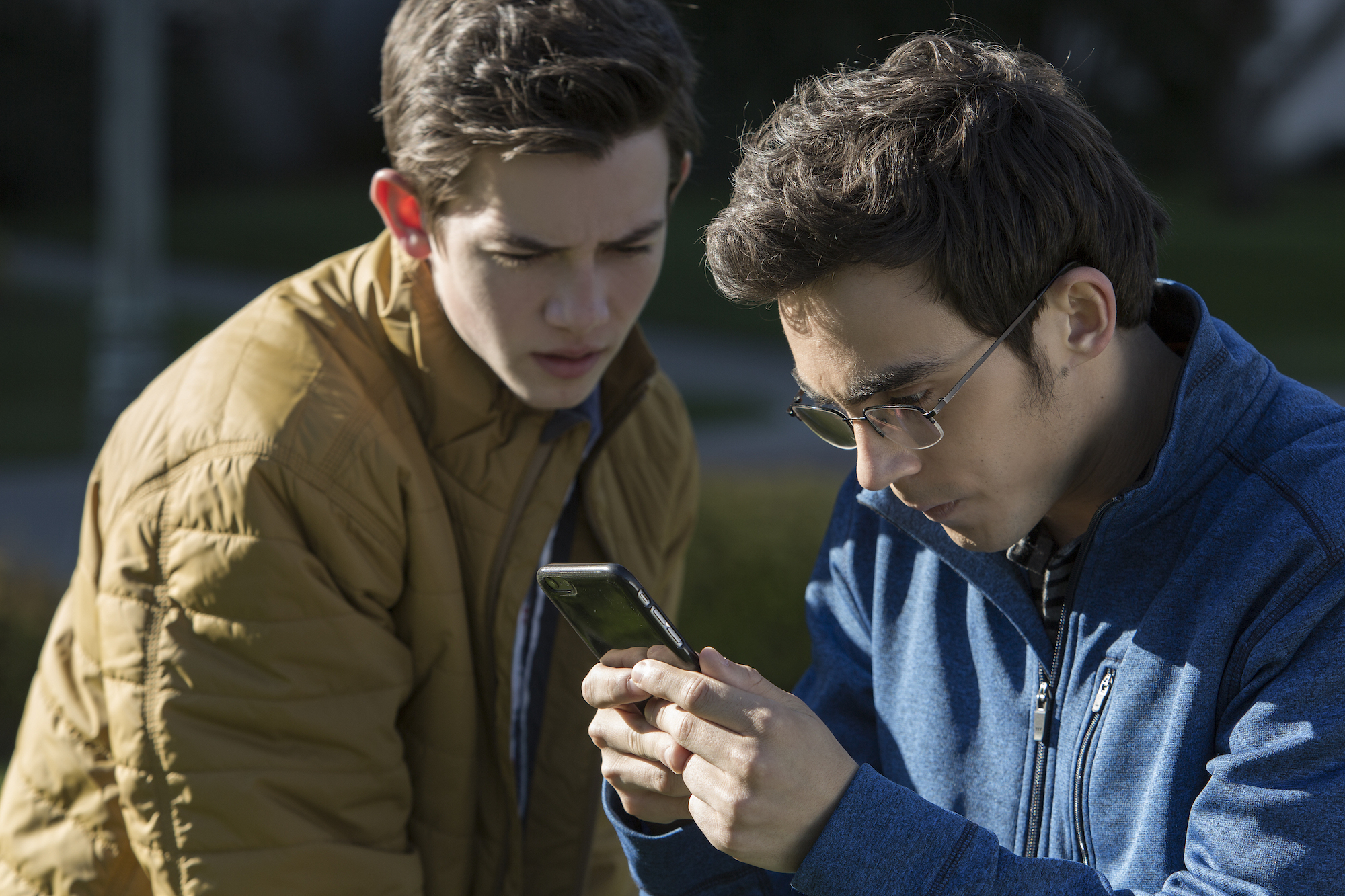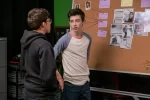“It’s poop, but it goes a lot deeper than that,” says one of the high school interviewees in the second season of Netflix’s “American Vandal.” Staring into the camera in a knitted Catholic school uniform, the girl’s statement — and her dramatic tone — act as a good summary of the season as a whole. It’s gross, it’s juvenile and it’s melodramatic, but it goes a lot deeper than that.
The award-winning first season of “American Vandal” was a brilliant parody of true-crime entertainment, taking all the trappings of “Serial” and “Making A Murderer” — overly sincere amateur detectives, a railroaded suspect, complicated timelines — and placing them on a menial crime. In Season 1’s case, the crime was penis graffiti in a high school parking lot, the convict was a mouth-breathing prankster and the detectives were an enthusiastic team of teenage journalists. The story was told through typical documentary-style interviews interwoven with reenactments, clips from characters’ social media accounts and cinema verité-style recordings of the filmmakers feverishly updating their theories on who drew the dicks.
Season 2 takes only one of those key plot elements, young filmmakers Peter Maldonado (Tyler Alvarez) and Sam Ecklund (Griffin Gluck), and places them in a new school with a new crime and a new convict worth saving. Previously, they were making a documentary about their own high school, but a clever bit of meta-commentary shows that since the release of “American Vandal” Season 1, the boys have become semi-famous and now field requests to investigate new crimes every day. They choose to center the latest installment on a Catholic school in suburban Washington after it is ravaged by a mysterious vandal known only by the Instagram handle “The Turd Burglar.”
Episode 1 opens with a stomach-churning documentation of the Turd Burglar’s most notorious crime, placing laxatives in the cafeteria lemonade and causing an event known only as “The Brownout.” It is not a sequence for weak stomachs, as squirts of bodily fluid are painstakingly documented on student witnesses’ Snapchat and Instagram posts and then recalled by the students themselves. It’s an absolutely vile piece of gross-out humor that is replayed throughout the season and still somehow retains its shock value.
Blame is quickly placed on Kevin McLain (Travis Tope) a loner who makes tea reviews on YouTube and insists on speaking in a clearly fake, almost-British lilt to prove his intelligence. Although he pleads guilty almost instantly, it becomes clear that he couldn’t have planned the Brownout, much less the other three poop-based attacks on the school. That leaves the blame on DeMarcus Tillman (Melvin Gregg), the star of the prep school basketball team and pride of the suburb. The blame ping pongs between them, and to other characters. Like in the first season, most episodes start with a new theory or piece of evidence from Sam and Peter, all with the goal of exonerating Kevin if they can find the truth.
Season 1 had a simple, gleefully stupid premise that somehow unfolded into one of the most accurate and moving depictions of modern teenage life I’ve ever seen, using the dick-drawing incident to investigate the insecurities and inner lives of students at the fictional Hanover High School in Oceanside, California. Viewers fell in love with the goofy premise and were left surprisingly affected by its unflinching portrait of the anxious, digitally curated lives of the modern teenager.
The show’s second season doesn’t have the element of surprise going for it any more, and most of the winking gags about true crime shows were played out in the first season, so I was a bit nervous about how it would turn out. It felt like the original eight-episode arc was so novel in its format and so perfect in its delicate balance of dick jokes and pathos that it couldn’t be beaten.
Season 2 feels like the creators saw that issue, as well — with the central joke of the series already told, they simply couldn’t make a season funnier than Season 1, so they didn’t try to. Many of the idiosyncrasies that made Season 1’s depiction of high school feel so spot-on were erased, because Peter and Sam were visiting another school instead of digging up dirt on their own.
There also wasn’t as much of a relationship between the two main characters, who went through a brief friend-breakup in Season 1 due to the pressure of making their documentary and then suddenly becoming popular at the end of the season. The scenes where Sam and Peter hash out the ethical boundaries of their investigations, with Peter on a hard-charging mission for truth and Sam worried about the feelings that could get hurt along the way, were some of the highlights of the first season. It’s a shame to see their partnership de-emphasized, as the two performers are some of the most magnetic in the ensemble cast, with Sam’s straight man always trying to calm down Peter’s feverish hunt for the truth.
Season 2 moves away from some of the gags and instead pushes on the emotional core that anchored Season 1, foregoing some of the laugh-out-loud moments of the former for a darker, more contemplative story. The mystery is better crafted and reaches a more satisfying conclusion, and there is a smaller cast of characters, each being investigated more deeply by Peter and Sam. The thematic elements branch out and start to touch on things like the pressure to perform a life, rather than live it on social media and the way that social groups treat natural outsiders.
The final scene features a monologue that itself has become a trademark of true crime specials, the common ending statement that tries to get viewers to identify with the criminal. This one is a three-minute screed from Peter, talking about how everyone on social media is, to put it frankly, full of shit. It’s corny, but after four hours of watching fictional lives be ripped apart by the things they posted online, it feels like a sobering reminder of the absurdist social dystopia that high schoolers have always existed in and choose to magnify through the images they post and the messages they send. It’s far sadder and more thought provoking than a show about poop ever should be, but you should brace yourself for it, because even though it lost some of its comedic charm, “American Vandal” makes a big splash on round number two.

















